In a groundbreaking development, the Toyota Innova Hycross has secured its place as the world’s first car equipped with a flex-fuel engine capable of running solely on ethanol. This innovation not only marks a historic moment for the automotive industry but also rekindles discussions about the potential of environmentally friendly and efficient fuel and powertrain technologies.

Table of Contents
Understanding Flex-Fuel Technology
Definition and Composition
Flex fuel, commonly known as flexible fuel, is an alternative fuel blend consisting of gasoline and either methanol or ethanol. Vehicles classified as flex-fuel are engineered with internal combustion engines designed to operate seamlessly with multiple fuel variations, including gasoline, ethanol, or methanol.
Global Implementation
Flex-fuel technology has found application in various parts of the world. India, the United States, and Brazil stand out as countries that prioritize this technology. In India, specifically, engines are tailored to function on both petrol and ethanol, aligning with global efforts to diversify fuel options.
Advantages and Drawbacks of Flex-Fuel
Cost-Effectiveness and Economic Benefits
One of the key advantages of flex-fuel lies in its cost-effectiveness for drivers. The blend of petrol and ethanol translates to immediate savings compared to traditional petrol. In countries like India, where ethanol production from sources like corn and sugarcane is on the rise, the use of flex-fuel supports the economy by reducing crude oil imports, thereby benefiting local farmers.

Environmental Benefits
From an environmental standpoint, ethanol proves to be a cleaner alternative to traditional petrol. Its use in vehicles leads to reduced emissions, contributing to a greener and more sustainable environment. The Toyota Innova’s flex-fuel engine aligns with global efforts to adopt cleaner and more eco-friendly transportation solutions.
Drawbacks and Challenges
However, the adoption of flex-fuel technology is not without its challenges. One notable drawback is the introduction of impurities from agriculture-derived ethanol, posing a risk of engine damage. Ethanol’s tendency to absorb contaminants can result in corrosion and harm to critical engine components.
Moreover, fuel efficiency becomes a significant concern for vehicle owners opting for flex-fuel. Ethanol-blended petrol, or flex fuel, is known to yield lower mileage compared to pure petrol, potentially raising the long-term cost of vehicle ownership.
The Toyota Innova Hycross and Flex-Fuel Technology
Historic Achievement
The Toyota Innova has now etched its name in history as the first car globally to feature a flex-fuel engine running entirely on ethanol. This momentous achievement not only solidifies Toyota’s commitment to innovation but also sets a precedent for the automotive industry’s transition towards more sustainable and diverse fuel options.
READ: A Comprehensive Comparison of Mahindra XUV700 and Mahindra ScorpioN: Unveiling the Pinnacle of SUV
Technical Modifications
The Innova Hycross has undergone specific modifications to accommodate the flex-fuel engine. The vehicle features a modified 2.0-litre, four-cylinder engine designed to run on an 85% ethanol blend known as E85. Toyota Kirloskar Motor has implemented changes such as modified spark plugs and piston rings for enhanced corrosion resistance. Additionally, a cold-start system has been incorporated, enabling the car to start in temperatures as low as -15 degrees Celsius.
To comply with real-driving emissions stipulated by the BS6 Stage II norms, the Innova Hycross includes three-way catalyst programming, changes in fuel tank and fuel pipe material, an ethanol sensor, and a new fuel pump and filter.
Performance and Efficiency
While calibration and validation of the Innova flex-fuel prototype are pending, Toyota claims that the vehicle can offer over 30 to 50 percent higher fuel efficiency. This, coupled with the lowest well-to-wheel emissions footprint of any similar-sized vehicle across powertrain technologies, positions the Innova Hycross as a notable player in the eco-friendly vehicle market.
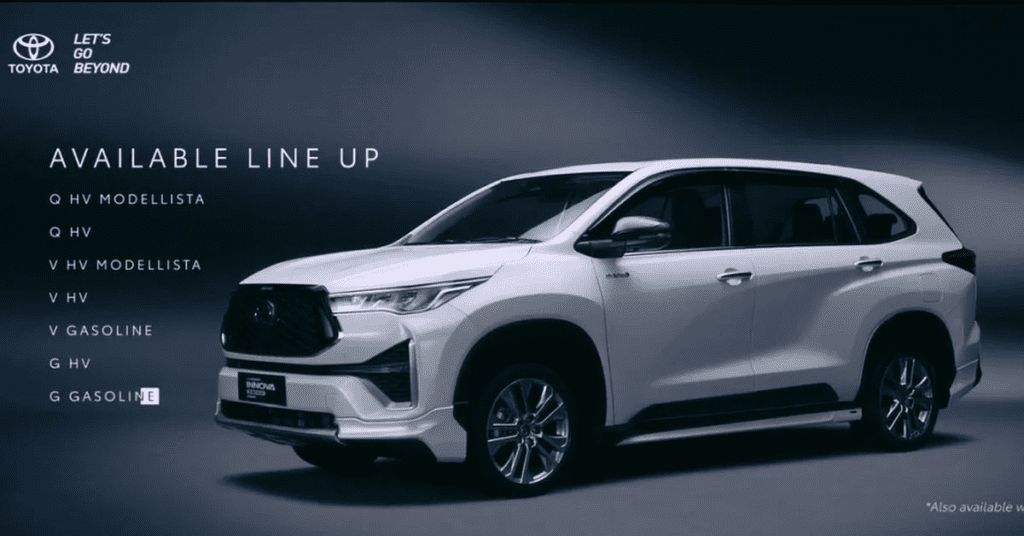
Challenges in Implementation
Engine Impurities and Corrosion Concerns
Despite the economic and environmental benefits, the inclusion of agriculture-derived ethanol in the blend introduces impurities that pose a risk of engine damage. Ethanol’s propensity to absorb contaminants can lead to corrosion and harm to engine components, raising concerns among potential users.
Fuel Efficiency Challenges
Fuel efficiency remains a significant concern for vehicle owners. Ethanol-blended petrol, or flex fuel, is acknowledged for yielding lower mileage compared to pure petrol. This factor could potentially impact the long-term cost of vehicle ownership, and consumers may weigh the economic advantages against the drawbacks.
Global Perspectives on Ethanol
Global Acceptance and Potential Alliance
The global acceptance of ethanol as a clean energy alternative is evident in countries like Brazil, the United States, China, and Thailand. Ethanol, derived from sugar or food grains, has emerged as a viable fuel source, particularly in regions with surplus food crops. Interestingly, India is “very close” to considering an international biofuels alliance, as noted by Hardeep S Puri, the petroleum minister.
Government Initiatives in India
India’s push towards ethanol as a cleaner fuel is part of a broader government initiative. The country aims for countrywide availability of E20 fuel (a blend of petrol with 20 percent ethanol) by 2025. This move is anticipated to eliminate the need for up to 63 million barrels of petrol, saving Rs 35,000 crore in oil import bills and reducing CO2 emissions by up to 21 million metric tonnes.
Conclusion and Future Prospects
Potential Impact on the Market
The introduction of the Toyota Innova Hycross with flex-fuel technology has the potential to reshape the Indian automotive market. An ethanol-powered option, offering reduced emissions and high fuel efficiency, could attract consumers looking for environmentally friendly alternatives.
Addressing Diesel-Powered Vehicles
With the possibility of an ethanol-powered Hycross replacing the diesel-powered Innova Crysta, Toyota aims to cater to consumer preferences while promoting a shift towards cleaner energy sources. This move aligns with the global trend of transitioning from traditional fuel options to more sustainable alternatives.
International Collaborations
Toyota’s previous import of a Corolla Hybrid flex-fuel vehicle from Brazil for a pilot project in India reflects the company’s commitment to exploring and promoting flex-fuel hybrid cars. Collaborations with institutions like the Indian Institute of Science further emphasize Toyota’s dedication to detailed viability studies and the potential internationalization of biofuels alliances.
In conclusion, the Toyota Innova Hycross’s feat as the first car with a flex-fuel engine running entirely on ethanol is a milestone for the automotive industry. This achievement not only underscores the potential of flex-fuel technology but also positions Toyota as a pioneering force in sustainable and innovative transportation solutions. As the world navigates towards cleaner and more eco-friendly options, the Innova Hycross stands at the forefront of a transformative era in the automotive landscape.
Read: 2024 Lexus LM, एक सुपर-लक्जरी एमपीवी भारत में डेब्यू! वह सब जो आपको जानना चाहिए.



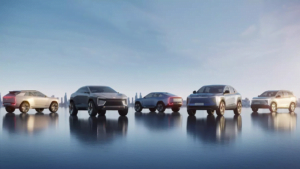









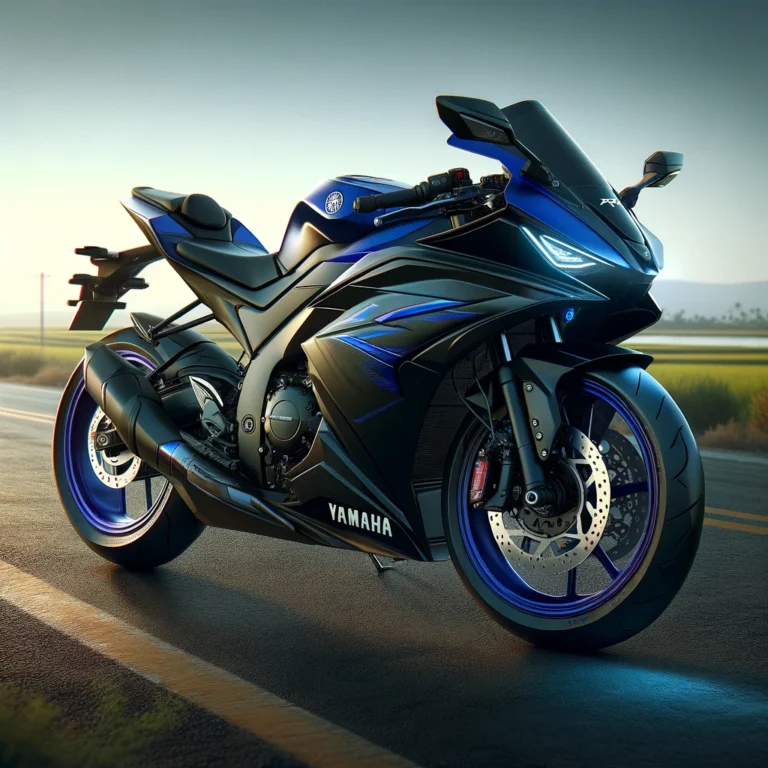
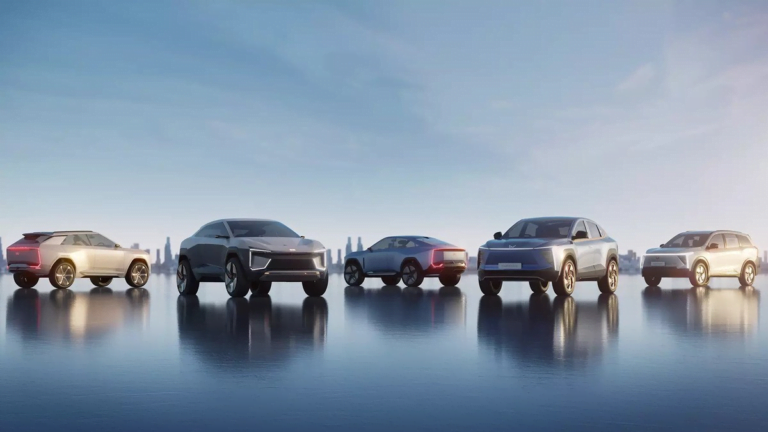


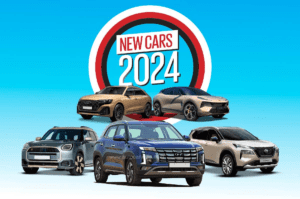




+ There are no comments
Add yours